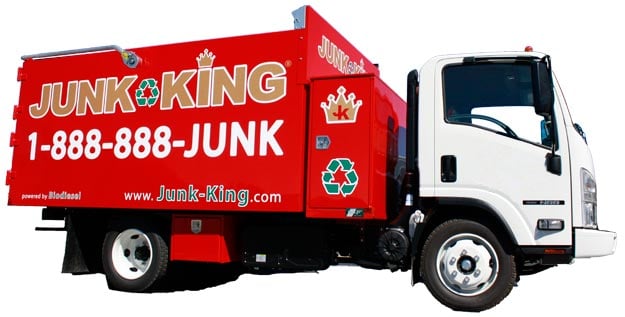Some households collect up to 100 pounds of hazardous waste per year. Here’s how to store and dispose of it correctly.
Even though most of us associate hazardous waste with factories and the pharmaceutical industry, lots of this dangerous junk gathers in every US household, and for many reasons, it should never end up in a landfill or our water system.
If disposed of incorrectly, hazardous waste can pollute water, destroy habitats and cause human illness. Unfortunately, many people don’t even know when they’re causing unnecessary harm.
Those old paint tins with a little leftover, commercial cleaners, adhesives, and used oil are all examples of hazardous waste, and if thrown down the drain, they can harm the environment. According to the EPA, anything that can catch fire, explode, react, or has corrosive or toxic properties is considered hazardous waste.
Here are some examples of hazardous waste:
- Adhesives
- Certain types of paint
- Oil filters and used oil
- Batteries
- Antifreeze
- Household cleaners and polishes
- Certain cosmetics
- Insecticides
- Lighter fluids
The average US household produces over 20 pounds of hazardous waste per year. Here’s what you need to do to protect our environment.
Become Less Reliant on Hazardous Waste Products
Before we discuss how to dispose of hazardous waste responsibly, it’s worth detailing how you can reduce your usage. Of course, you can’t go without medication and certain commercial cleaners, but there are ways you can become less reliant on certain hazardous products. For example, instead of using a cleaner to unblock your drains, use a plunger.
Here are some other ways you can become less reliant on hazardous products:
- Instead of using furniture polish, add a teaspoon of lemon juice to a glass of vegetable oil.
- Mix a tablespoon of lemon juice with 16 ounces of water to clean windows and balustrades.
- Soak carpets with baking soda for 15 minutes before vacuuming instead of using a rug deodorizer.
- Boil two inches of water with a teaspoon of baking soda, a teaspoon of salt and a sheet of aluminum foil in a shallow pan for a maximum of five minutes to make homemade silver polish.
The less reliant you become on hazardous products, the less waste you’ll generate, and consequently, less potentially harmful chemicals will end up in our water, atmosphere and landfills.
How to Correctly Store and Dispose of Hazardous Waste
Unfortunately, very few people can avoid purchasing potentially harmful products altogether, meaning you need to know how to store them properly. Make sure you keep these considerations in mind:
- Always follow the instructions regarding how to store and use potentially dangerous products. There may be some tips on disposal there, too.
- Never remove labels from chemical products, and don’t store them in food containers.
- Don’t mix hazardous waste with other household products.
- Always store dangerous chemicals and products away from children and pets.
Here’s how to correctly dispose of hazardous household waste:
- Check with your local government whether there are any guidelines regarding how to dispose of hazardous waste in your area.
- Take old and used batteries to a dedicated battery recycling center.
- Take any leftover medications back to the chemist where you purchased them.
- Contact a police station to find out how to dispose of ammunition and explosives.
- Take empty gas bottles to a collection point.
- When in doubt, contact the manufacturer to ask how to dispose of waste products safely.
Don’t assume empty containers can’t be harmful, and never throw hazardous waste down the drain.
The Easy Way to Dispose of Any Waste
At Junk Kings, we know it can be confusing to know what constitutes as hazardous waste and how to dispose of it, which is why we provide a junk retrieval service and endeavor to dispose of all dangerous waste safely. If you have a large volume of waste and need an easy way to dispose of everything responsibly, contact us today, and we’d be delighted to tell you how we can help.


